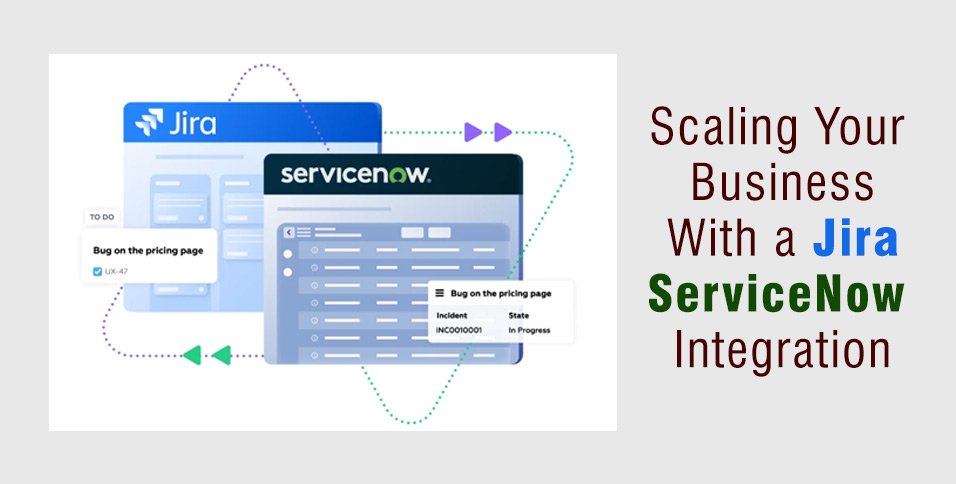In today’s fast-moving business world, scalability is everything. As companies grow larger and more complex in their operations, they need tools that can keep up with them – or even better, stay one step ahead. The integration of Jira and ServiceNow offers a better way for organizations to enhance communication, streamline workflows, and widen their reach.
Why Integrate Jira with ServiceNow?
Jira is an issue tracking system created by Atlassian that is widely known for its agile project management capabilities. Conversely, ServiceNow is an enterprise service management platform specializing in ITSM (IT service management) and process automation. These two systems, when combined, bring together agile project management with leading service management, thereby giving organizations a full range of tools needed to succeed.
Streamlined Workflows
Integrating Jira with ServiceNow allows information to move smoothly between the project management team and the IT service desk staff. This reduces data silos while providing a holistic view of what’s happening across operations. Hence, incidents or tickets reported within ServiceNow can automatically create tasks or issues in JIRA so that developers and IT personnel are always on the same page.
Real-time Communication and Collaboration
Using an integrated system, teams can collaborate in real time. ServiceNow sends notifications when updates are made on Jira and vice versa so that everyone is kept in the loop. This eliminates the need for cross-platform checks and continuous communications outside of the systems.
Enhanced Reporting and Analytics
The integration provides more comprehensive data for analysis. Jira’s data on project progress can be combined with ServiceNow’s reporting on ITSM to give a holistic view of performance. This leads to better decisions being made as well as improved resource allocation.
Automated Processes
Automation is also a great advantage. For example, tasks like incident reporting or task creation could easily be automated across platforms, reducing administrative overhead and giving team members more time to concentrate on other important areas.
How to Implement a Jira ServiceNow Integration
Implementing integration between Jira and ServiceNow involves several steps:
Planning
Define the integration’s clear goals and map out the important workflows to be merged. Evaluate the data that should be exchanged between systems and prepare for adequate resources and tools that will ensure successful integration.
Use of Middleware
Middleware is often needed during jira servicenow integration since the two platforms may lack inherent support for direct integration. You can create a link between these two platforms using variants like Zapier, Workato, ZigiOps or custom API connectors.
Testing and Iteration
Begin with a small-scale pilot project to test the flow of data and communication between systems. This integration must be tested well before being introduced throughout an organization. This phase allows for modification as needed.
Training and Support
It is necessary to teach employees how to use the new system. More so, continuous support should be provided for questions or concerns that may arise during the use of both systems.
Continuous Improvement
Gather feedback on the integration after it has been set up and see how well it works over time. Continuous improvement will maximize workflow efficiency, enabling you to gain more from your investment.
Scaling for Success
The Jira and ServiceNow integration can change everything for your organization. This combination links agile project management with IT service management, thereby providing a holistic approach to dealing with complications brought about by enterprise expansion.
By strategically integrating these two platforms, productivity will be enhanced, and team collaboration will be made easier. This will lead to data-centric insights that are critical in successfully scaling operations in any business environment.
Also Read: Simplifying Testing with Predictive QA and Test Intelligence















